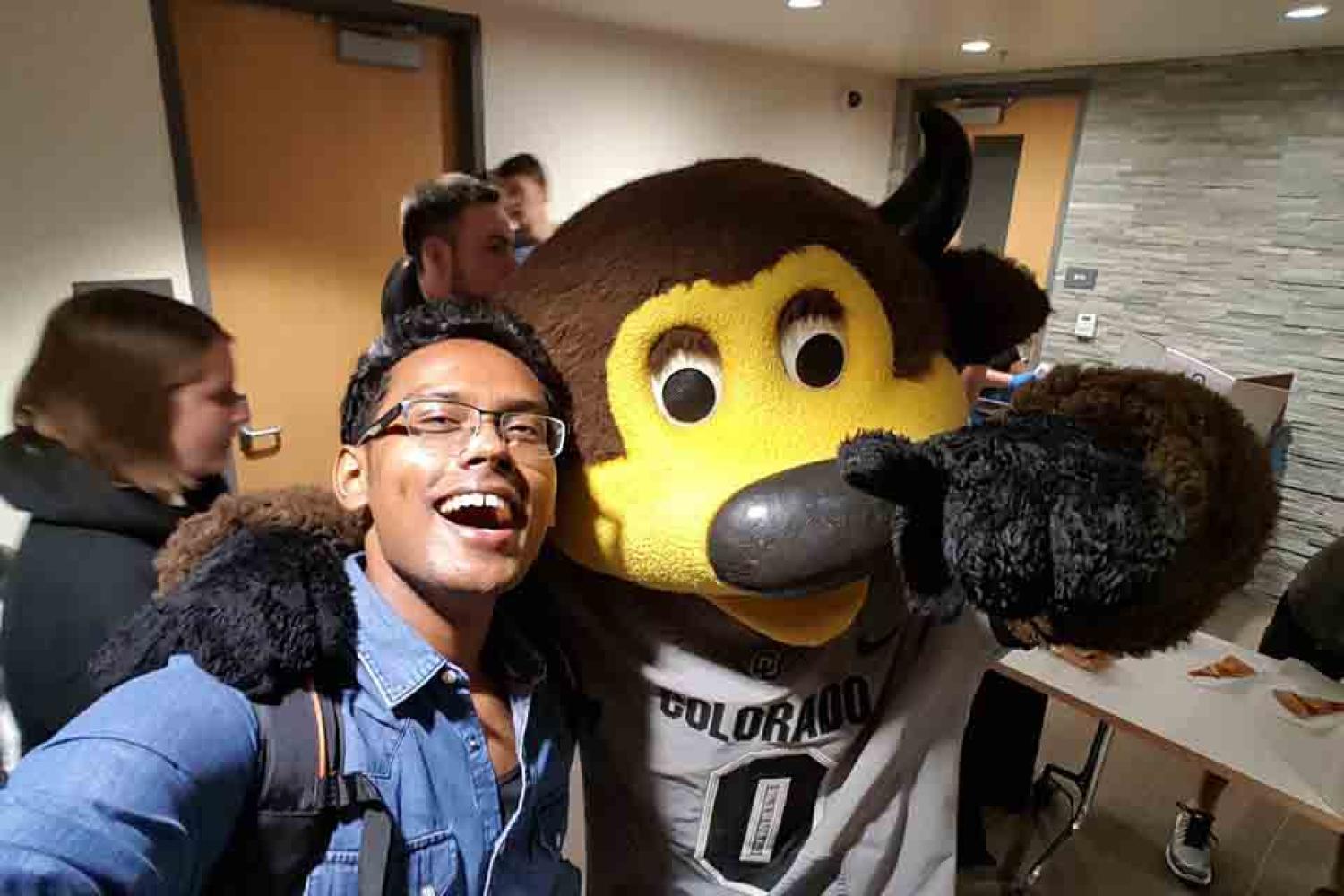Teaching talent: Graduate instructor recognized for his ability to engage students

Ask Shayon Gupta about his secrets to success as a data structures instructor, and he’ll tell you about activities like Kahoot quizzes, live “Ask Me Anything” sessions and physically acting out linked lists, trees and graphs.
That, and KitKats.
The KitKats are part of “chocolate Fridays,” which the master’s student and graduate part-time instructor (GPTI) instituted to keep up attendance and engagement in Friday afternoon lectures.
“I set the bag at the front of the room, and they can come down and get it whenever they want,” Gupta said. “They can also stop me whenever they want during the lecture to ask questions. Until everyone is satisfied with the answers, we don’t move on.”
It’s that dedication to engaging his students that earned Gupta practically every award available to GPTIs this spring. From the Department of Computer Science, he won the Outstanding Graduate Part Time Instructor Award and the Lloyd Botway Fellowship for an outstanding master’s student. From the university, he won the GPTI Teaching Excellence Award, the Marinus Smith Award and the United Government of Graduate Students Graduate Teaching Excellence Award.
“We’ve never had a master’s student like Shayon before,” computer science graduate advisor Rajshree Shrestha said. “He definitely deserves every recognition he’s receiving.”
Gupta developed his love for teaching as an undergraduate at Maulana Abul Kalam Azad University of Technology in West Bengal, India, where he was chair of the school’s Association for Computing Machinery chapter. Because few undergrads participated in hands-on research projects, the group decided to put together some simple software engineering projects, like face detection using Python, and classes on topics like Github.
“In about six to eight months, we saw a drastic change,” Gupta said. “Students started becoming really, really involved, and we started having research expos for just undergrads.”
So he knew that when he came to CU Boulder, he would want to teach if given a chance, in addition to researching reinforcement learning with Assistant Professor Orit Peleg.
Because “our department always blesses students with amazing opportunities,” by his third semester, he was one of three instructors overseeing teaching assistants and handling up to 600 students each semester in the core data structures course.
For many students, the course is their first exposure to the underlying theory behind computer science. He found that physical demonstrations of things like linked lists – where students spread out across the room and point at each other to represent nodes in a computer’s memory – helped to make the ideas less abstract and cement the concepts in students’ minds.
“If you can’t visualize data structures, you can’t code them,” Gupta said. “You cannot just code something without understanding it, so I believe in understanding the concept thoroughly, and then you code.”
After he graduates this week, he plans to carry his love of teaching into his first full-time job with Microsoft in Silicon Valley, where he’ll be working in their enterprise division with Office 365.
“In my interview, I told them I really liked teaching, so they promised me that they would find some teaching avenue for me there, like leading the new employee orientation,” Gupta said.
And once he establishes his professional path, he’d like to continue to find new ways of being an educator.
“I truly believe education in all walks of life can actually help bring out the best versions of ourselves and help us achieve our true potential,” he said.
Overall, Gupta said graduate school has been a very important phase of his life.
“While I was teaching the students, the students taught me so many things,” he said. “I’m proud to be a CU student for everything that CU has let me become.”


